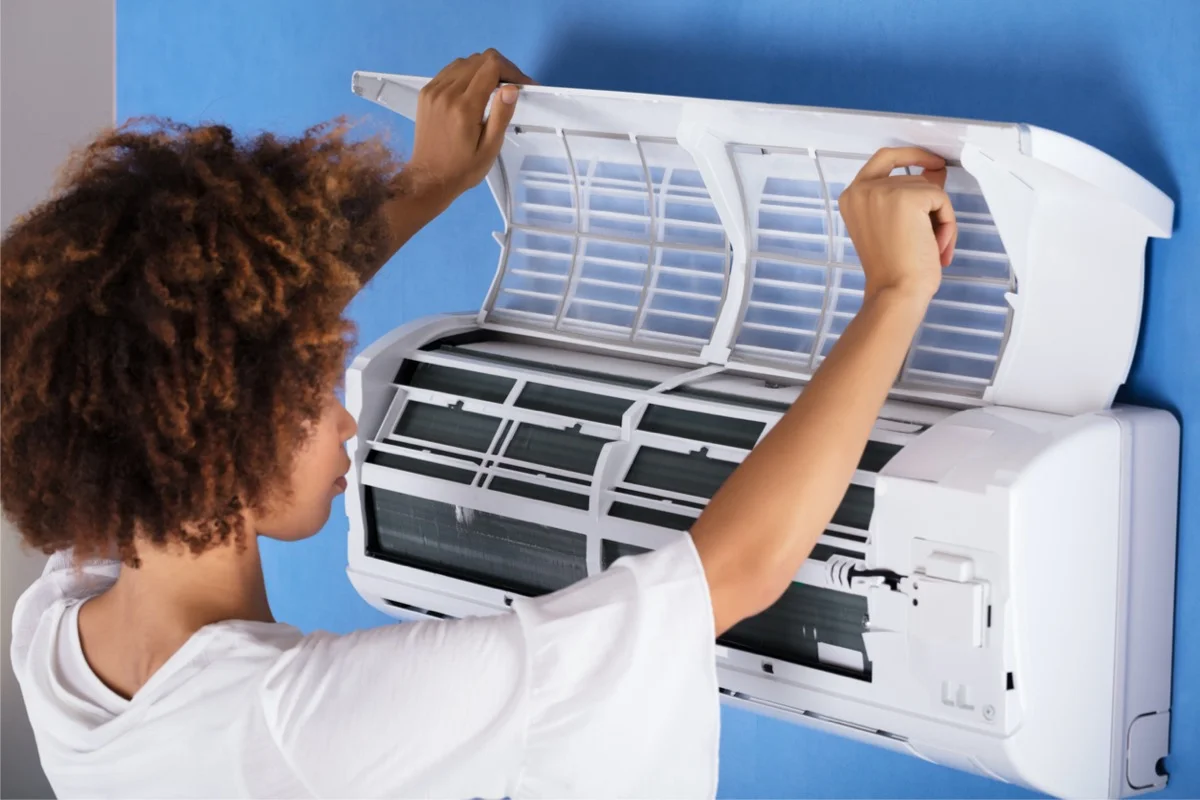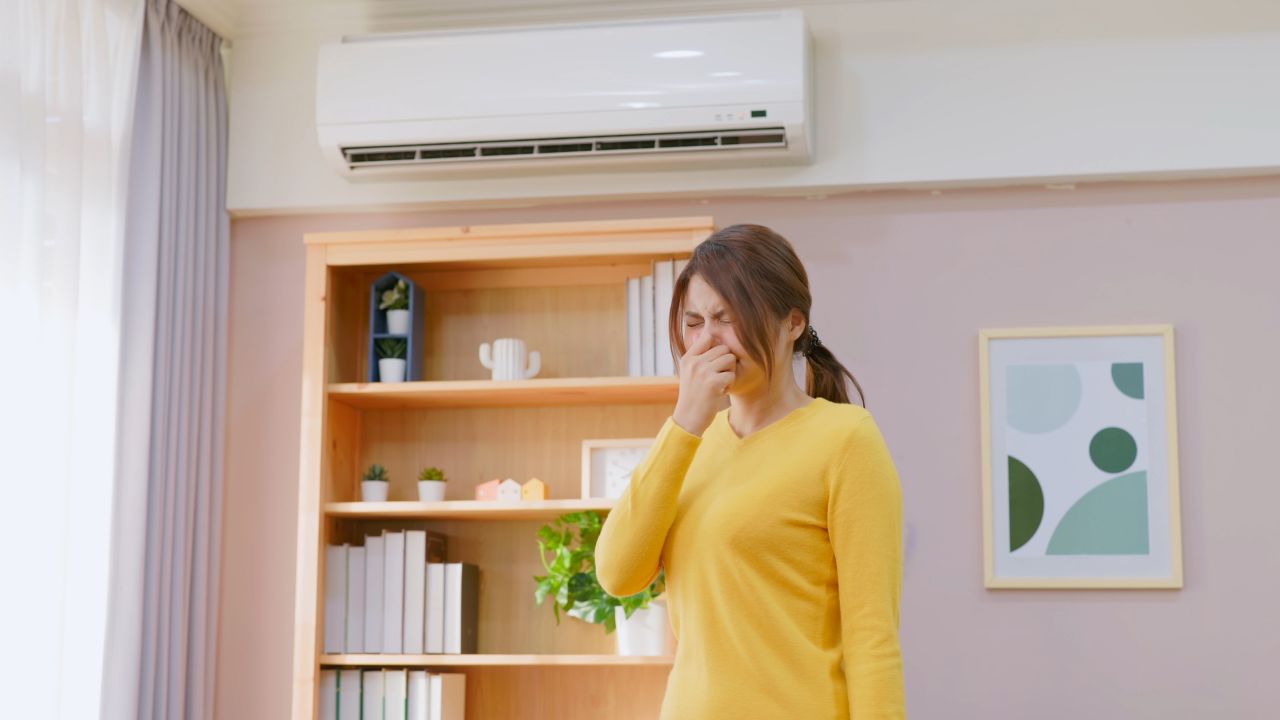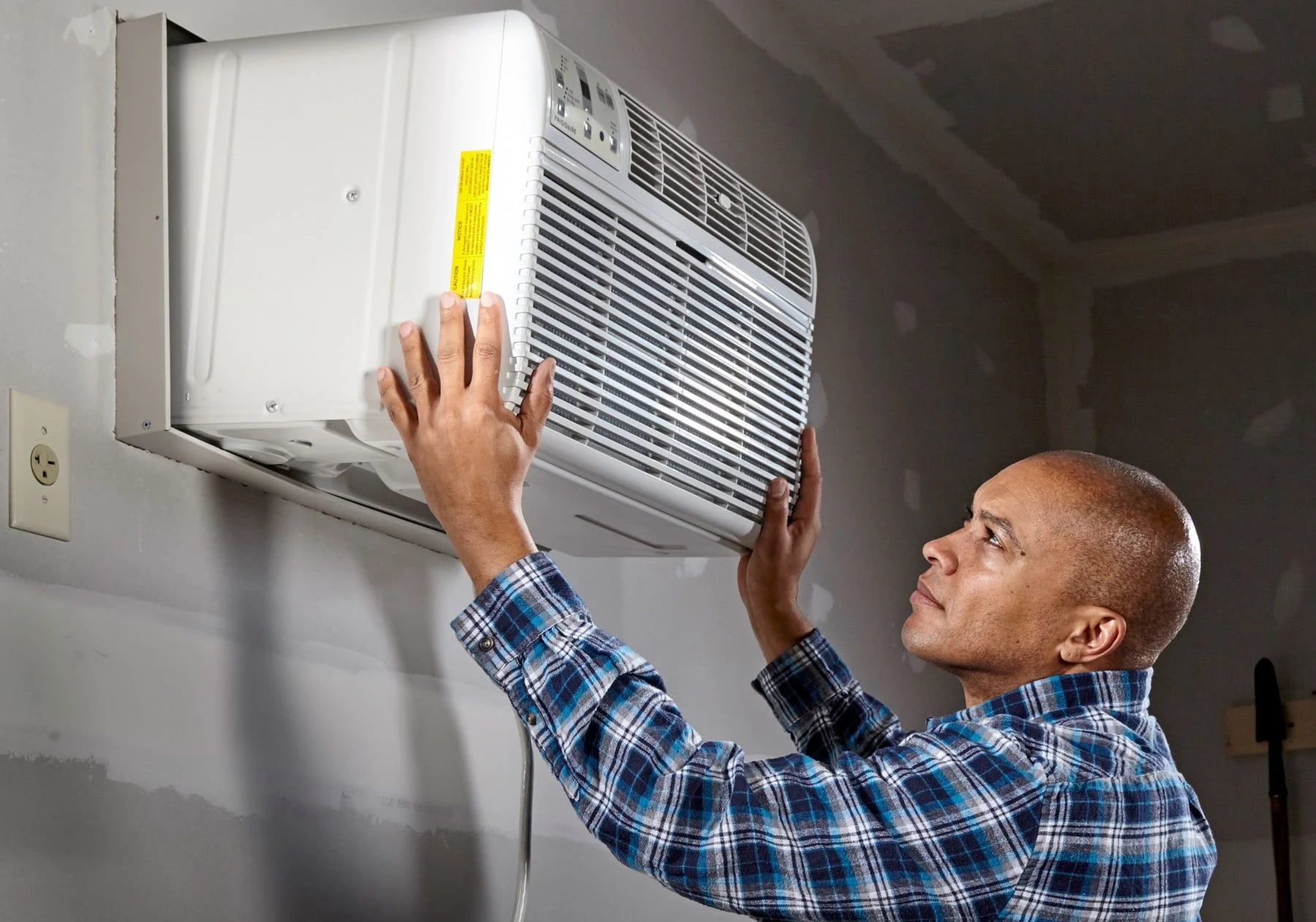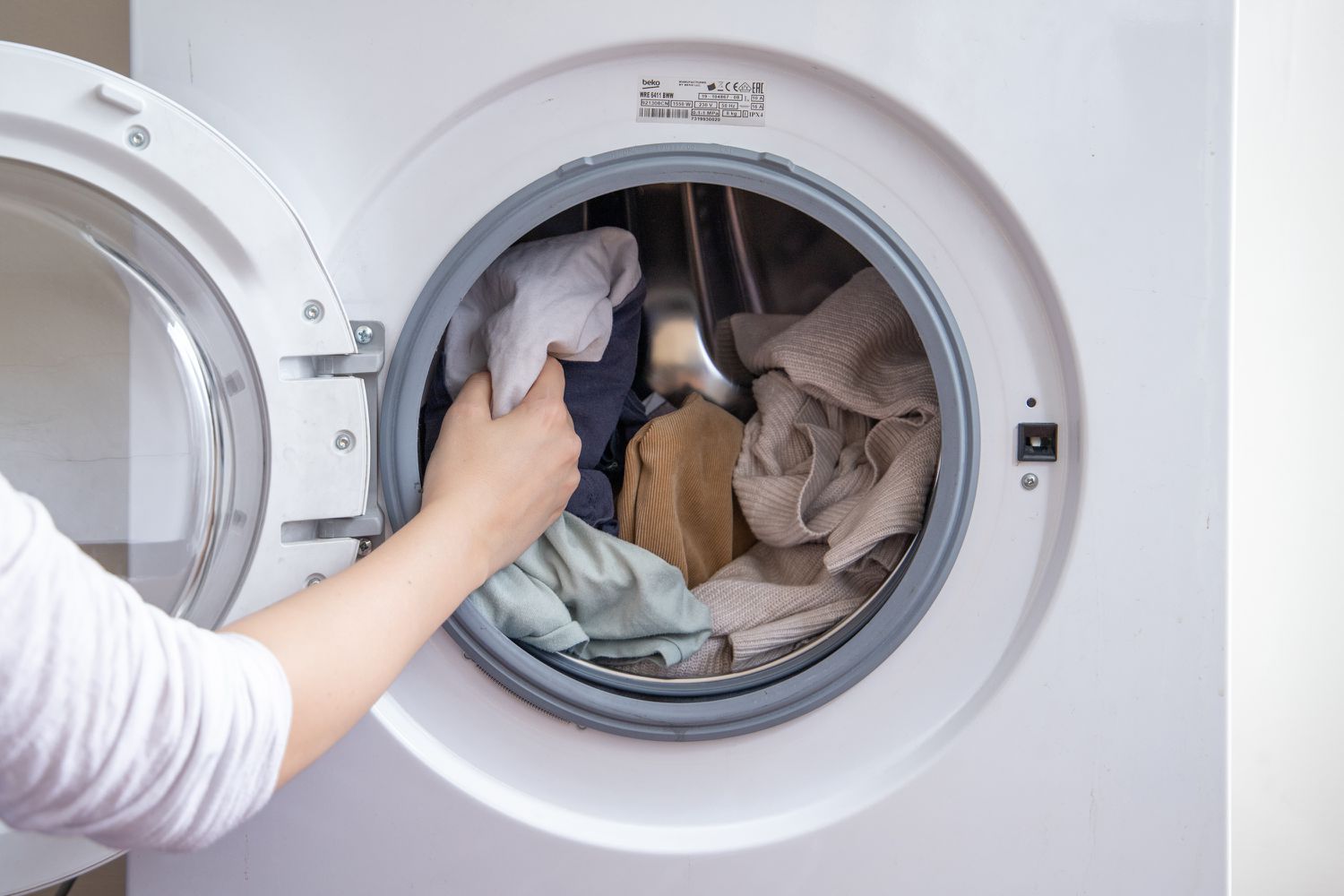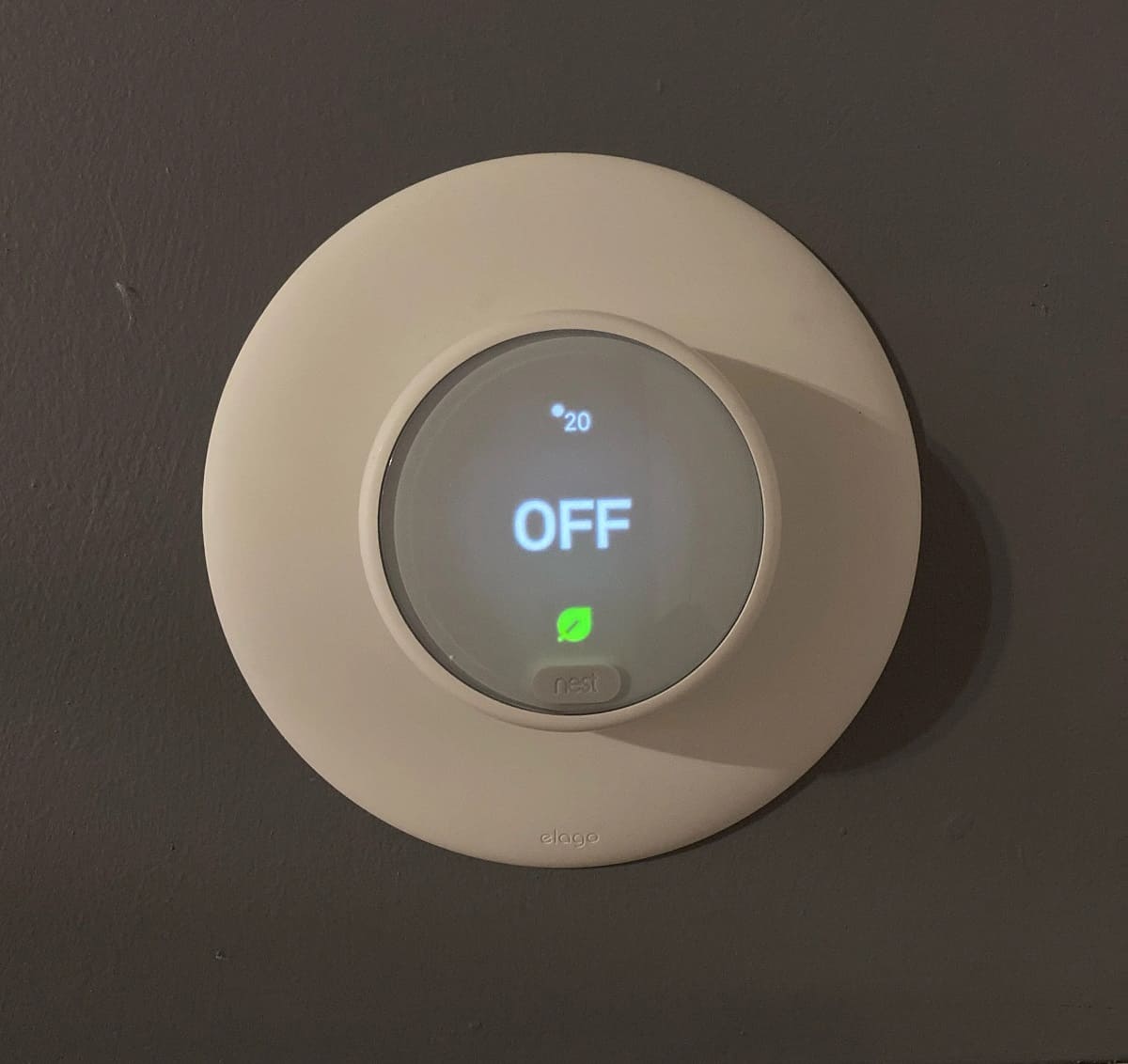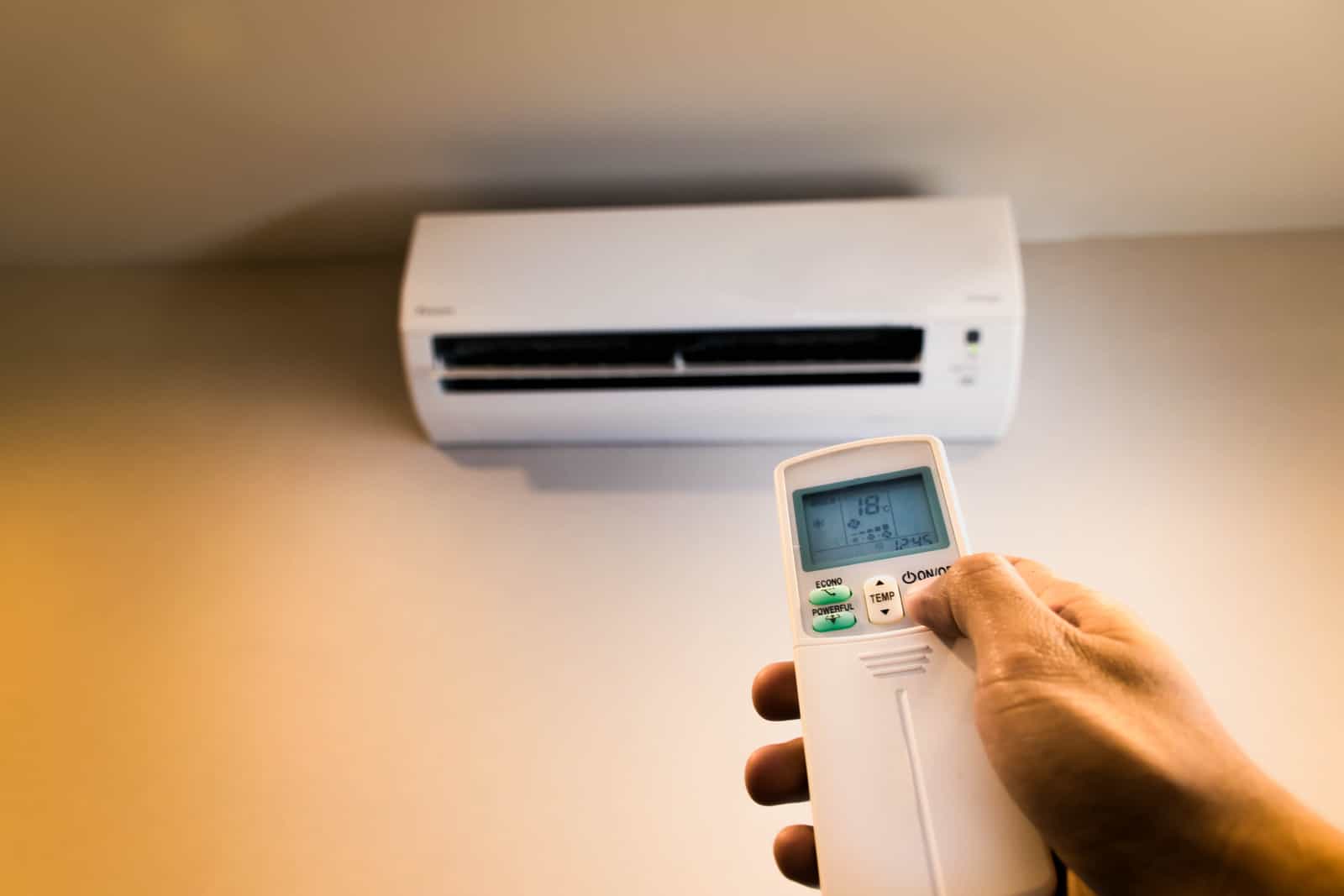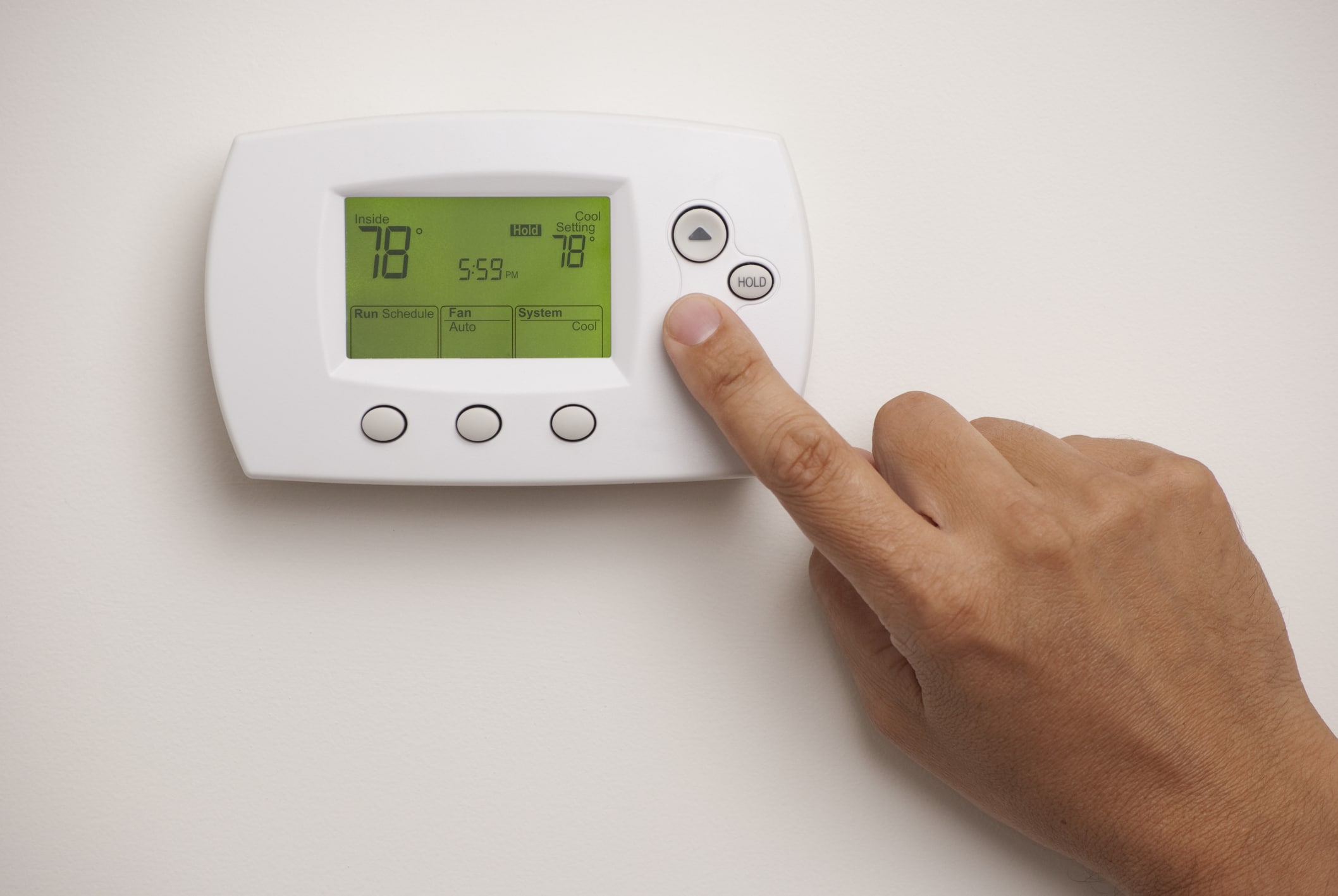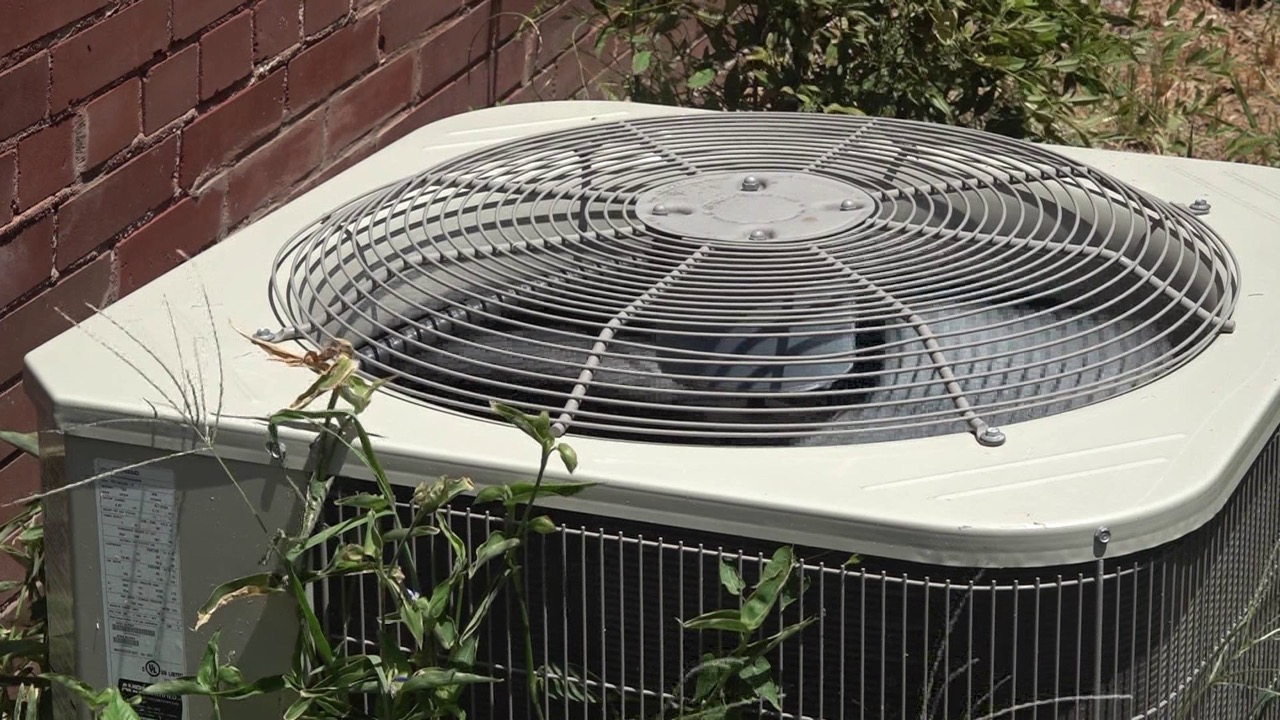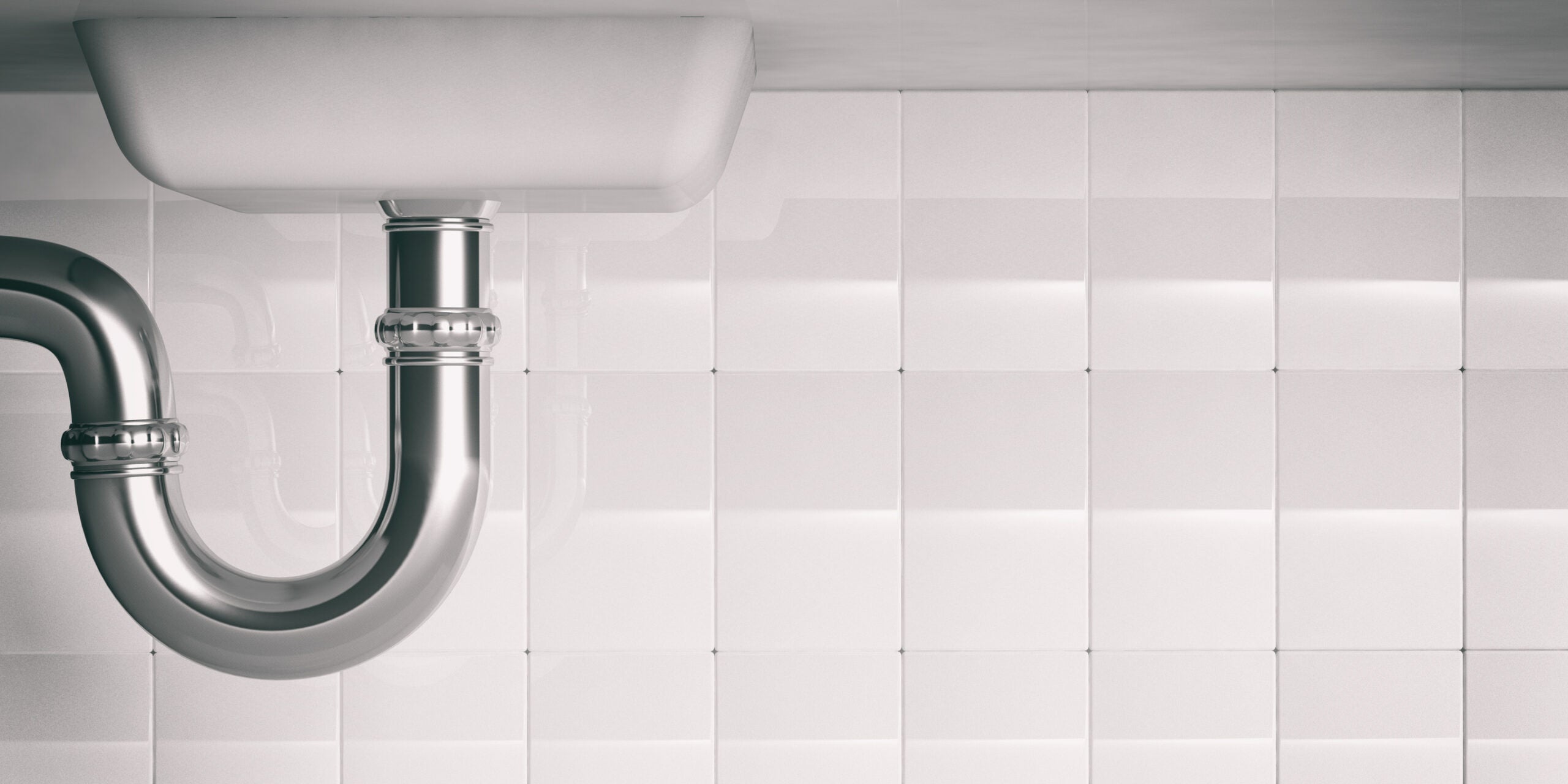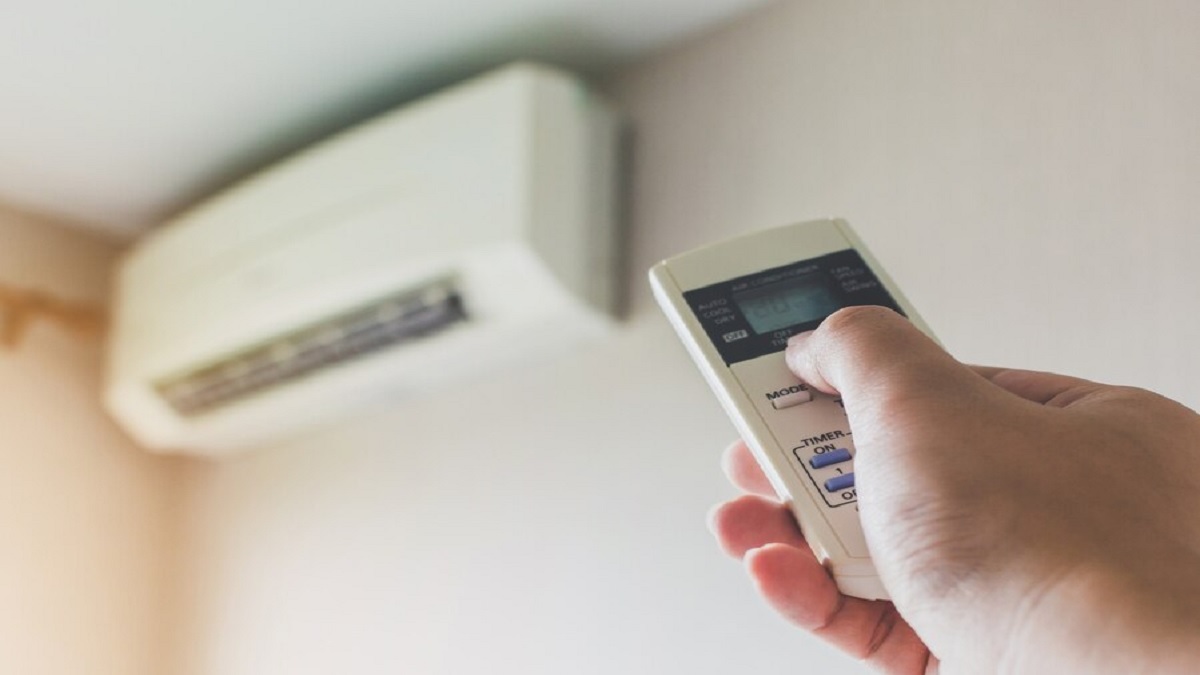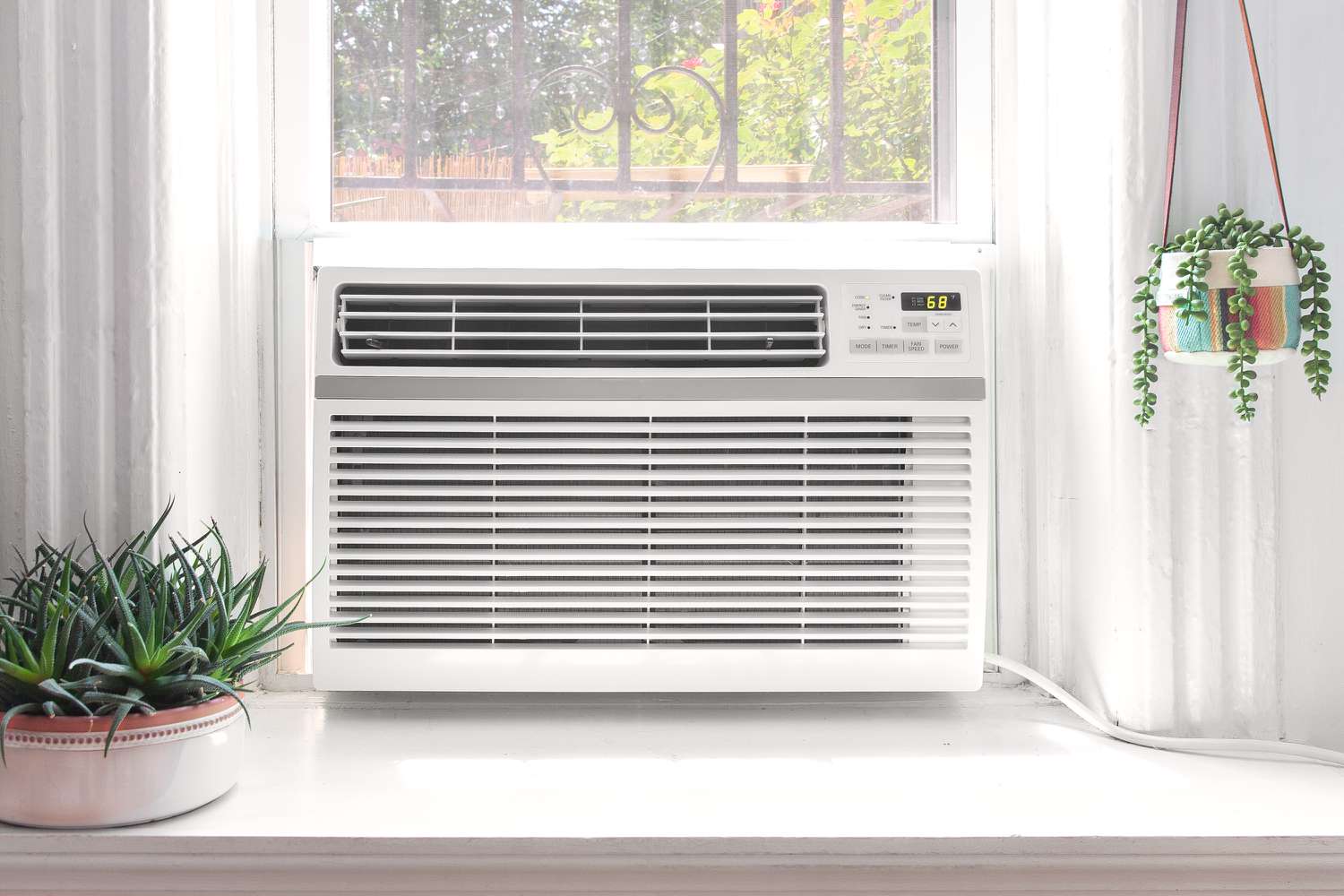Home>Home Maintenance>Why Does My Air Conditioner Make A Banging Sound When It Turns Off
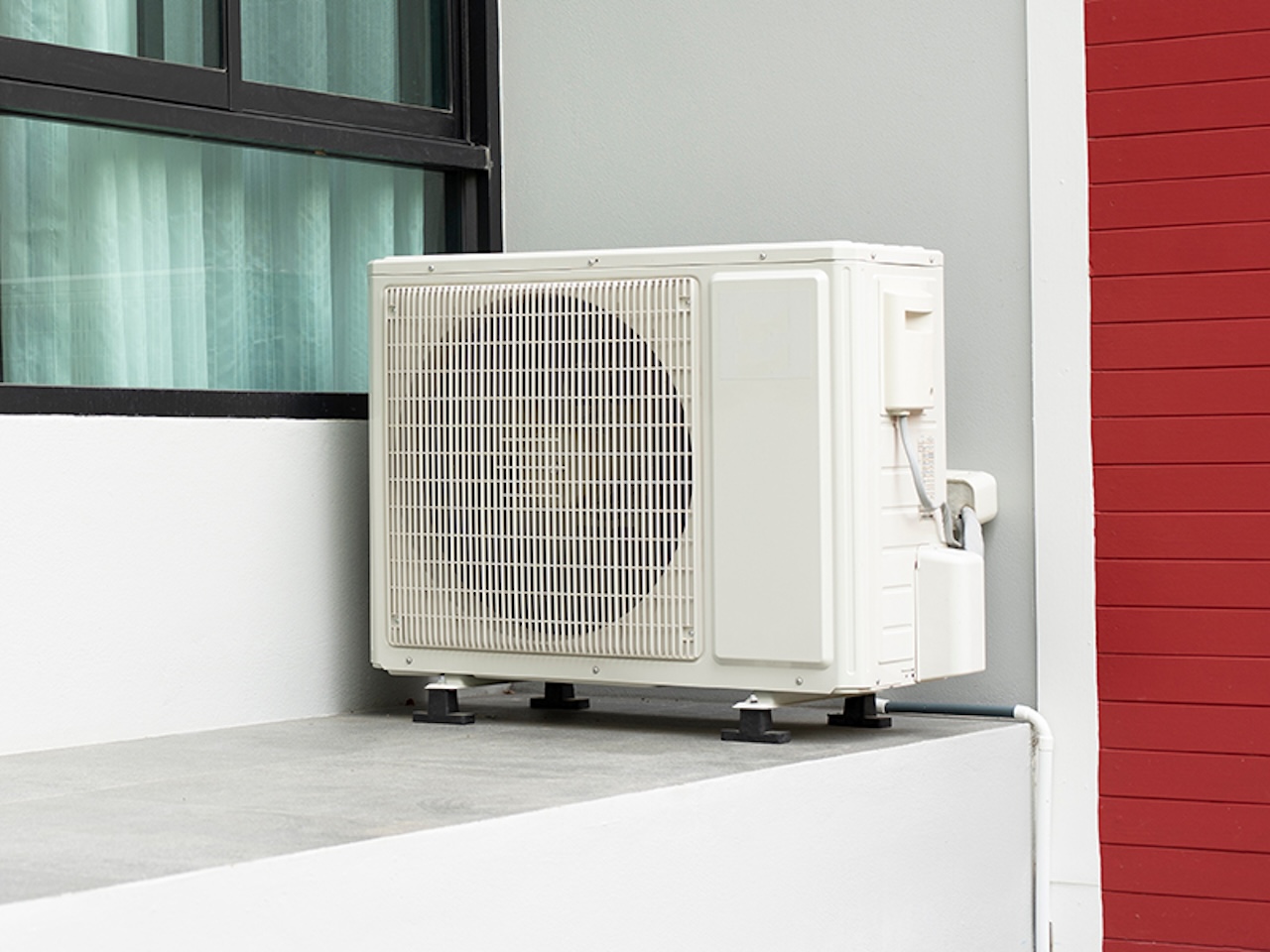

Home Maintenance
Why Does My Air Conditioner Make A Banging Sound When It Turns Off
Modified: October 28, 2024
Discover why your air conditioner is making a banging sound when it turns off and learn how to fix it with our home maintenance tips.
(Many of the links in this article redirect to a specific reviewed product. Your purchase of these products through affiliate links helps to generate commission for Storables.com, at no extra cost. Learn more)
Introduction
Have you ever noticed a loud banging sound coming from your air conditioner when it turns off? If so, you’re not alone. This common issue can be quite alarming, but fortunately, it’s usually not a sign of something disastrous. Understanding the causes of this banging sound can help you determine whether it’s time for a simple fix or if you need to call in a professional.
When an air conditioner shuts off, it should do so smoothly and quietly. However, if you hear a loud banging noise, it’s often an indication that something is amiss. This noise can be caused by a variety of factors, ranging from loose or damaged parts to dirty airflow restrictions. Let’s delve into some of the most common causes and solutions for the banging sound when an air conditioner turns off.
Key Takeaways:
- Don’t ignore a banging sound from your AC! Loose parts, dirty filters, and low refrigerant levels could be the culprits. Regular maintenance and professional help can keep your home cool and quiet.
- Keep your AC running smoothly. Regularly clean or replace air filters, check refrigerant levels, and address faulty components. Professional maintenance ensures a peaceful and efficient cooling experience.
Read more: Why Is My Air Conditioner Making Sound?
Causes of Banging Sound in Air Conditioners When Turning Off
When your air conditioner is turning off, several issues can lead to the loud banging sound you may be hearing. Understanding the underlying causes can help you identify the problem and take appropriate action. Here are some common culprits:
- Loose or Damaged Parts: Over time, the vibrations and constant use of your air conditioner can cause components to loosen or become damaged. This can manifest as a loud banging noise when the system shuts off. The most common parts that can contribute to this issue include loose fan blades, loose belts, or a loose compressor.
- Dirty or Clogged Air Filters: A dirty or clogged air filter can restrict airflow, leading to changes in pressure within the air conditioner. When the system cycles off, these pressure changes can result in a sudden banging sound. Regularly cleaning or replacing your air filters can help prevent this issue.
- Refrigerant Issues: Low refrigerant levels or improper refrigerant charge can cause the air conditioner’s compressor to work harder, resulting in increased pressure within the system. When the system shuts off, this can lead to a loud banging sound. Ensuring proper refrigerant levels and addressing any leaks or issues with the refrigerant can resolve this problem.
- Faulty Compressor: The compressor is a vital component of the air conditioning system that helps circulate refrigerant and maintain proper cooling. If the compressor is faulty or worn out, it may create excessive pressure when turning off, resulting in a banging noise. In some cases, a compressor replacement may be necessary.
- Fan Motor Problems: Issues with the fan motors, such as worn-out bearings or misalignment, can cause irregular vibrations and banging sounds during the shutdown cycle. Regular maintenance and lubrication of the fan motors can help prevent this problem.
Identifying the specific cause of the banging sound can be challenging, especially if you’re not familiar with the inner workings of your air conditioner. It’s always a good idea to contact a professional HVAC technician to accurately diagnose and address the issue.
Loose or Damaged Parts
One of the possible causes of a banging sound when your air conditioner turns off is loose or damaged parts. Over time, the constant vibrations and usage of your air conditioning system can cause various components to become loose or even sustain damage. When the system cycles off, these loose or damaged parts can move or vibrate, resulting in a loud banging noise.
The most common parts that can contribute to this issue include:
- Fan blades: If the fan blades are loose, they may hit other components or the housing of the air conditioner when shutting off, causing a banging sound. In some cases, the fan blades may even become bent or warped, exacerbating the issue.
- Belts: The belt that connects the motor to the blower can become loose or worn out over time. When the air conditioner turns off, a loose belt can slip, leading to a banging sound. It’s important to address this issue promptly to prevent further damage to the belt and other components.
- Compressor: The compressor is responsible for compressing the refrigerant and circulating it through the air conditioning system. If the compressor is loose or damaged, it can create excessive vibrations when shutting off, resulting in a banging noise. In some cases, the compressor may need to be tightened or replaced.
To fix the banging sound caused by loose or damaged parts, it’s recommended to contact a professional HVAC technician. They will have the expertise and tools necessary to assess the situation and take appropriate action. Depending on the specific issue, the technician may tighten loose components, replace worn-out belts or fan blades, or repair or replace the compressor if needed.
Regular maintenance of your air conditioning system can help prevent loose or damaged parts from causing the banging sound. Schedule routine inspections and servicing to check for any signs of wear or looseness in the components. Additionally, avoid excessive vibration or impact on the unit, as this can contribute to the issue.
Addressing loose or damaged parts promptly not only helps eliminate the banging sound, but it also ensures the overall efficiency and longevity of your air conditioner. Don’t hesitate to seek professional help to diagnose and rectify these issues, ensuring optimal performance of your cooling system.
Dirty or Clogged Air Filters
Another common cause of a banging sound in air conditioners when they turn off is dirty or clogged air filters. Air filters are an essential component of your HVAC system, responsible for trapping dust, dirt, and other airborne particles to maintain clean and healthy air quality. However, over time, these filters can become dirty and clogged, hindering proper airflow.
When an air conditioner cycles off, changes in pressure occur within the system. If the air filters are clogged, they can restrict airflow, causing these pressure changes to be more pronounced. This sudden shift in pressure can result in a loud banging sound as the air conditioner shuts down.
To fix the banging sound caused by dirty or clogged air filters, follow these steps:
- Regular Cleaning: It’s important to clean your air filters regularly to prevent a buildup of dirt and debris. Consult your air conditioner’s manual for instructions on how to access and clean the filters. In most cases, gently vacuuming or rinsing the filters with water should suffice.
- Filter Replacement: If your air filters are too dirty to be effectively cleaned, it’s recommended to replace them. Check the specifications of your air conditioner for the appropriate filter type or consult with a professional HVAC technician for assistance.
By regularly cleaning or replacing your air filters, you ensure proper airflow and minimize the occurrence of the banging sound. Additionally, clean filters help improve indoor air quality and maintain the efficiency of your air conditioning system.
It’s worth noting that the frequency of filter cleaning or replacement depends on various factors such as the type of filter, the air quality in your area, and the usage of your air conditioner. As a general guideline, it’s recommended to clean or replace your air filters every one to three months.
Preventing dirty or clogged air filters is key to avoiding the banging sound and maintaining the optimal performance of your air conditioner. Regular maintenance, including checking and cleaning the filters, will not only eliminate the sound but also extend the lifespan of your unit.
Refrigerant Issues
Refrigerant issues can also contribute to the banging sound that occurs when an air conditioner turns off. Refrigerant is a critical component of the cooling process, responsible for absorbing heat from indoor air and releasing it outside. However, if there are issues with the refrigerant, it can cause imbalances within the air conditioning system, leading to a banging noise upon shutdown.
Here are some common refrigerant-related problems that can cause the banging sound:
- Low Refrigerant Levels: If the refrigerant levels in your air conditioner are insufficient, it can put undue strain on the system. This can cause the compressor to work harder, resulting in an increase in pressure when the air conditioner cycles off. The sudden pressure change can produce a banging noise. If you suspect low refrigerant levels, it is crucial to have a professional HVAC technician assess the situation and recharge the system if necessary.
- Improper Refrigerant Charge: In some cases, the air conditioner may have an incorrect refrigerant charge due to an improper installation or a refrigerant leak. This can cause the system to operate with an inadequate amount of refrigerant, leading to various issues, including a banging sound when turning off. It’s essential to have a qualified technician inspect the system, identify any leaks, and recharge the refrigerant to the correct levels.
Addressing refrigerant issues can be complex and requires the expertise of a professional technician. Attempting to handle refrigerant-related problems without the proper knowledge and equipment can be dangerous and may lead to further damage to the system.
To prevent refrigerant issues and the associated banging sound, it’s important to schedule regular maintenance for your air conditioner. A professional technician can check the refrigerant levels, identify any leaks or imbalances, and perform the necessary repairs or recharge the system as needed. Additionally, maintaining proper insulation and minimizing exposure to extreme temperatures can help reduce refrigerant-related problems.
By addressing refrigerant issues promptly, you not only eliminate the banging sound but also ensure the efficient and effective operation of your air conditioning system, keeping your home cool and comfortable.
Read more: Why Is My Air Conditioner Not Turning Off
Faulty Compressor
A faulty compressor can be a significant cause of the banging sound when your air conditioner turns off. The compressor is an essential component responsible for compressing the refrigerant and circulating it throughout the system, enabling the cooling process. When the compressor is not functioning correctly, it can create excessive pressure within the air conditioning system, resulting in a loud banging noise upon shutdown.
Here are some common issues that can cause a faulty compressor:
- Worn-out Compressor: Over time, the compressor can wear out due to continuous usage and age. This can lead to inefficient operation and irregular pressure changes, resulting in the banging sound when the system turns off.
- Compressor Mounting Issues: Improper mounting or installation of the compressor can also contribute to a faulty compressor. If the compressor is not securely fastened or aligned correctly, it can vibrate excessively or make contact with other components, causing the banging noise.
- Electrical Problems: Faulty electrical connections or a malfunctioning capacitor can affect the performance of the compressor. This can result in irregular operation, including sudden pressure changes and the accompanying banging sound when the system shuts down.
Fixing a faulty compressor generally requires the expertise of a professional HVAC technician. They can accurately diagnose the issue and recommend the appropriate course of action, which may include repair or replacement of the compressor. Attempting to repair or replace a compressor without proper knowledge and tools can be dangerous and may result in further damage to the system.
Regular maintenance is crucial in preventing compressor issues. Routine inspections and servicing can help identify potential problems early on, allowing for timely repairs or replacements. Additionally, ensuring proper compressor mounting during installation can help prevent future issues.
By addressing a faulty compressor promptly, you not only eliminate the banging sound but also ensure the optimal functionality of your air conditioning system. A properly functioning compressor plays a vital role in maintaining cool and comfortable indoor temperatures.
Fan Motor Problems
Problems with the fan motor can also contribute to the banging sound that occurs when your air conditioner turns off. The fan motor plays a crucial role in circulating air within the system, facilitating the cooling process. When the fan motor develops issues, it can result in irregular vibrations and noises, including a loud bang when the system shuts down.
Here are some common fan motor problems that can cause the banging sound:
- Worn-out Bearings: The fan motor contains bearings that allow the motor shaft to rotate smoothly. Over time, these bearings can wear out, leading to increased friction and vibrations. The irregular vibrations can cause a banging noise when the system turns off.
- Misalignment: If the fan motor becomes misaligned, it can cause the fan blades to scrape against other components or the housing of the air conditioner when shutting off. This misalignment can produce a loud banging sound as the system cycles off.
- Lack of Lubrication: Insufficient lubrication can lead to increased friction within the fan motor, causing it to operate less smoothly. This can result in vibrations and banging sounds when the air conditioner turns off.
Resolving fan motor problems typically requires the assistance of a professional HVAC technician. They will have the expertise to diagnose the issue accurately and recommend the appropriate solution, which may include repairing or replacing the fan motor.
Regular maintenance is important in preventing fan motor problems. Lubricating the fan motor regularly can help reduce friction and prolong its lifespan. Additionally, keeping the unit clean and free from debris can prevent misalignment and other issues that may affect the fan motor’s operation.
By addressing fan motor problems promptly, you not only eliminate the banging sound but also ensure the efficient and quiet operation of your air conditioning system. The fan motor plays a critical role in maintaining proper airflow and keeping your home cool and comfortable.
Check for loose or damaged parts in the air conditioner, such as the fan or motor mounts. These can cause banging sounds when the unit turns off. Regular maintenance can help prevent this issue.
Solutions to Fix the Banging Sound
Experiencing a banging sound when your air conditioner turns off can be concerning, but there are solutions to resolve this issue. The specific solution will depend on the underlying cause of the noise. Here are some common solutions to fix the banging sound:
- Tightening or Replacing Loose or Damaged Parts: If loose or damaged parts are causing the banging sound, such as fan blades, belts, or the compressor, a professional HVAC technician can tighten or replace them as necessary. This will prevent excessive movement and vibrations, eliminating the noise.
- Cleaning or Replacing Dirty Air Filters: If dirty or clogged air filters are the culprit, cleaning or replacing them will restore proper airflow and alleviate pressure changes when the system shuts off. Regularly cleaning or replacing air filters can prevent future occurrences of the banging sound.
- Checking and Replenishing Refrigerant Levels: If refrigerant issues are causing the noise, a professional technician can check the levels and recharge the system as needed. This will ensure proper pressure and prevent the banging sound when the air conditioner cycles off.
- Repairing or Replacing a Faulty Compressor: If the compressor is faulty, it may need to be repaired or replaced. A qualified technician can diagnose the issue and recommend the appropriate course of action to eliminate the banging sound effectively.
- Repairing or Replacing Fan Motors: In the case of fan motor problems, such as worn-out bearings, misalignment, or lack of lubrication, a professional technician can repair or replace the fan motor. This will restore proper operation and eliminate the banging noise during shutdown.
It’s important to note that attempting to fix these issues on your own without proper knowledge and tools can worsen the problem or lead to personal injury. It’s always recommended to seek the assistance of a qualified HVAC technician for accurate diagnosis and professional repairs.
Additionally, regular maintenance of your air conditioning system can help prevent the occurrence of the banging sound. Schedule routine inspections, cleaning, and servicing to identify and address any potential issues before they escalate.
By implementing the appropriate solutions and maintaining your air conditioning system, you can enjoy a quiet and efficient cooling experience without the disruptive banging sound when the system turns off.
Tightening or Replacing Loose or Damaged Parts
One of the common solutions to fix the banging sound when your air conditioner turns off is to tighten or replace any loose or damaged parts. Over time, the constant vibration and usage of your air conditioning system can cause various components to become loose or suffer from wear and tear. These loose or damaged parts can contribute to the loud banging noise when the system shuts down.
Here are some steps to address this issue:
- Inspect the Fan Blades: Start by inspecting the fan blades, which are located in the outdoor unit of the air conditioner. Check for any signs of damage or warping. If any blades are bent or out of alignment, it can cause them to hit other components or the housing of the air conditioner when turning off.
- Tighten the Fan Blades: If the fan blades are loose, you can tighten them to prevent excessive movement. Use a wrench or screwdriver to secure the blades firmly in place. Ensure that they are properly aligned and do not contact any other parts of the unit when in operation.
- Inspect the Belts: Check the condition of the belts that connect the motor to the blower. Over time, these belts can become loose or worn out. Examine the belts for any signs of fraying or damage.
- Tighten or Replace the Belts: If the belts are loose, you can tighten them using the appropriate tension adjustment mechanism. However, if the belts are worn out or damaged, it’s best to replace them with new ones to ensure proper operation and prevent future issues.
- Inspect and Tighten the Compressor: The compressor is another component that may contribute to the banging sound if it’s loose. Inspect the compressor for any signs of movement or vibration. If you notice any looseness, it’s important to tighten the mounting bolts or brackets to secure the compressor in place.
Addressing loose or damaged parts not only eliminates the banging sound but also prevents further damage to the system. However, it’s essential to exercise caution when attempting to tighten or replace these components. If you’re unsure or uncomfortable with performing this task, it’s always best to seek the assistance of a professional HVAC technician who has the expertise and tools required to handle the job safely.
Additionally, regular maintenance and inspection of your air conditioning system can help identify loose or damaged parts before they cause a banging sound. By scheduling routine servicing, you can ensure that all components are in proper working condition and minimize the occurrence of any potential issues.
By tightening or replacing any loose or damaged parts, you can bring back the smooth and quiet operation of your air conditioner, providing you with a comfortable and peaceful environment in your home.
Read more: Why Is My Air Conditioner Not Turning On
Cleaning or Replacing Dirty Air Filters
One of the solutions to address the banging sound when your air conditioner turns off is to clean or replace dirty air filters. Air filters play a crucial role in maintaining the air quality and proper airflow in your HVAC system. Over time, these filters can become clogged with dust, dirt, and other airborne particles, restricting the airflow and causing changes in pressure within the system.
Here’s how you can resolve this issue:
- Locate the Air Filters: The air filters are typically located in the return air vents or inside the air handler unit. Consult your air conditioner’s manual or a professional technician if you’re unsure about the exact location of the filters.
- Inspect the Filters: Remove the filters and inspect them for dirt, dust, and debris. If the filters are visibly dirty or clogged, it’s a clear sign that they need to be cleaned or replaced.
- Clean the Filters: If the air filters are reusable, gently clean them to remove the accumulated dirt and debris. You can vacuum the filters or rinse them with water. Ensure that the filters are completely dry before reinstalling them.
- Replace the Filters: If the filters are disposable or if they’re damaged or too dirty to be effectively cleaned, replace them with new filters. Be sure to choose the appropriate size and type of filters for your specific air conditioning system.
- Regular Maintenance: To prevent the air filters from becoming dirty or clogged in the future, establish a regular maintenance schedule. Clean or replace the filters every one to three months, depending on the manufacturer’s guidelines and the air quality in your environment.
Cleaning or replacing dirty air filters not only resolves the banging sound but also improves the overall performance of your air conditioner. When the filters are clean, the airflow is unrestricted, allowing the system to operate efficiently and effectively.
It’s important to note that air filters are a crucial component of your HVAC system, and neglecting their maintenance can lead to further problems, such as reduced cooling efficiency, increased energy consumption, and potential damage to other components. Regularly cleaning or replacing the air filters is a simple yet effective way to ensure optimal performance and longevity of your air conditioning system.
If you’re unsure or uncomfortable with cleaning or replacing the air filters yourself, it’s always advisable to consult a professional HVAC technician. They can guide you through the process or handle the task for you, ensuring the proper care and maintenance of your air conditioning system.
Checking and Replenishing Refrigerant Levels
Another solution to address the banging sound when your air conditioner turns off is to check and replenish the refrigerant levels. The refrigerant is a vital component of the cooling process, responsible for absorbing heat from indoor air and releasing it outside. Insufficient refrigerant levels can cause imbalances within the air conditioning system, leading to pressure changes and the banging sound during shutdown.
Here are the steps to resolve this issue:
- Call a Professional: Checking and replenishing refrigerant levels require specialized tools and knowledge. It’s best to contact a professional HVAC technician who has the expertise to handle refrigerant-related tasks.
- Inspection: The technician will inspect the refrigerant lines and connections for any signs of leaks, corrosion, or damage. They will also examine the system for potential leaks at the evaporator coil, condenser coil, or other components.
- Recharge the System: If the technician determines that the refrigerant levels are low, they will recharge the system with the appropriate amount of refrigerant. This process involves adding refrigerant to the system according to the manufacturer’s guidelines and the specific requirements of your air conditioner.
- Fixing Leaks: If the technician detects any refrigerant leaks, they will locate and repair them to prevent further refrigerant loss. Fixing leaks is essential to ensure the longevity and efficiency of your air conditioning system.
- Regular Maintenance: To prevent refrigerant issues in the future, establish a regular maintenance schedule for your air conditioner. This includes checking refrigerant levels during routine inspections and servicing to identify any leaks or imbalances early on.
It’s important to note that handling refrigerant requires specialized training and certification. Attempting to check or replenish refrigerant levels without the proper knowledge and equipment can be dangerous and may lead to personal injury or further damage to the system. Always rely on a qualified HVAC technician to handle refrigerant-related tasks.
Regular maintenance and prompt attention to refrigerant issues are crucial for the proper functioning of your air conditioning system. By ensuring the correct refrigerant levels, you not only eliminate the banging sound but also improve the overall cooling efficiency and lifespan of the unit.
Consulting a professional technician for refrigerant-related tasks ensures that your air conditioner operates safely and optimally, providing you with reliable and comfortable cooling in your home.
Repairing or Replacing a Faulty Compressor
If a faulty compressor is the cause of the banging sound when your air conditioner turns off, it’s essential to address the issue promptly. The compressor is a crucial component that compresses the refrigerant and circulates it through the air conditioning system. When the compressor is not functioning correctly, it can create excessive pressure within the system, resulting in the banging noise during shutdown.
Here are the steps to resolve this issue:
- Consult a Professional: Dealing with a faulty compressor requires the expertise of a professional HVAC technician. They have the knowledge and tools to accurately diagnose the issue and recommend the appropriate solution.
- Compressor Inspection: The technician will perform a comprehensive inspection of the compressor to determine the extent of the problem. They will check for any visible damage, leaks, electrical problems, or issues with mounting or alignment.
- Repairing the Compressor: In some cases, if the issue is minor or repairable, the technician may be able to fix the faulty compressor. They will make the necessary repairs, which can involve replacing faulty electrical components, fixing leaks, or resolving mounting or alignment issues.
- Replacing the Compressor: If the compressor is severely damaged or beyond repair, it may need to be replaced. The technician will carefully remove the faulty compressor and install a new one that is compatible with your air conditioning system.
- Regular Maintenance: To prevent future compressor issues, it’s crucial to have regular maintenance scheduled for your air conditioning system. Routine inspections and servicing can help identify potential problems with the compressor early on and resolve them before they escalate.
It’s important to note that working with a faulty compressor is complex and potentially dangerous. Attempting to repair or replace a compressor without the proper knowledge and tools can result in further damage to the system or personal injury. It’s always recommended to leave compressor-related tasks to a qualified HVAC technician.
Regular maintenance and prompt attention to compressor issues are crucial to ensure the efficiency and longevity of your air conditioning system. By addressing a faulty compressor, you not only eliminate the banging sound but also restore the proper cooling operation of your unit, providing you with a comfortable indoor environment.
Consulting a professional technician for compressor-related tasks ensures that the repairs or replacements are carried out correctly, guaranteeing the optimal performance of your air conditioner for years to come.
Repairing or Replacing Fan Motors
If fan motors are causing the banging sound when your air conditioner turns off, it’s crucial to address the issue promptly. Fan motors play a vital role in circulating air within the system, facilitating the cooling process. When fan motors develop problems, such as worn-out bearings or misalignment, they can lead to irregular vibrations and noises, including a loud bang during shutdown.
Here are the steps to resolve this issue:
- Contact a Professional: Repairing or replacing fan motors requires the expertise of a professional HVAC technician. They have the knowledge and tools to accurately diagnose the issue and recommend the appropriate solution.
- Motor Inspection: The technician will inspect the fan motor for any signs of damage, wear, or misalignment. They will check the bearings, motor alignment, and overall motor performance.
- Repairing the Fan Motor: In some cases, the fan motor may need repair rather than replacement. The technician may address issues such as worn-out bearings by lubricating or replacing them, ensuring smooth and quiet operation.
- Replacing the Fan Motor: If the fan motor is severely damaged, worn out, or misaligned, it may need to be replaced. The technician will carefully remove the faulty motor and install a new one that is compatible with your air conditioning system.
- Regular Maintenance: To prevent future fan motor problems, regular maintenance is essential. This includes lubricating the bearings, ensuring proper alignment, and checking for any signs of wear or damage during routine inspections.
It’s crucial to rely on a professional HVAC technician for the repair or replacement of fan motors. Attempting to handle fan motor issues without the proper knowledge and tools can result in further damage to the system or personal injury.
Regular maintenance and prompt attention to fan motor problems are vital to ensure the efficiency and smooth operation of your air conditioning system. By repairing or replacing faulty fan motors, you not only eliminate the banging sound but also restore proper airflow and cooling performance in your home.
Consulting a professional technician for fan motor-related tasks guarantees that the repairs or replacements are carried out correctly, ensuring optimal functionality and a quiet cooling experience in your living space.
Conclusion
Experiencing a banging sound when your air conditioner turns off can be concerning, but with proper understanding and action, you can resolve the issue and enjoy a quiet and efficient cooling experience in your home. We’ve explored several common causes of the banging sound, including loose or damaged parts, dirty or clogged air filters, refrigerant issues, faulty compressors, and fan motor problems.
To address these issues, it’s important to take the following steps:
- Tightening or replacing loose or damaged parts: Ensure that components such as fan blades, belts, and compressors are secure and properly aligned.
- Cleaning or replacing dirty air filters: Regularly clean or replace air filters to maintain proper airflow and prevent pressure changes.
- Checking and replenishing refrigerant levels: Consult a professional technician to assess and recharge the refrigerant levels as needed.
- Repairing or replacing a faulty compressor: Contact a professional to diagnose and repair or replace a faulty compressor, ensuring proper cooling performance.
- Repairing or replacing fan motors: Seek the expertise of a professional technician to address issues with fan motors, including bearing wear or misalignment.
Regular maintenance and timely attention to these issues are essential for the efficient and effective operation of your air conditioning system. Consider scheduling routine inspections and servicing with a professional HVAC technician to identify and resolve potential problems before they escalate.
Remember, attempting to fix these issues yourself without the proper knowledge and tools can result in further damage or personal injury. It’s always best to rely on the expertise of a qualified technician for safe and reliable repairs.
By addressing the causes of the banging sound and taking the necessary steps to rectify them, you can enjoy a comfortable and peaceful environment in your home, with a properly functioning air conditioning system that operates smoothly and quietly.
Frequently Asked Questions about Why Does My Air Conditioner Make A Banging Sound When It Turns Off
Was this page helpful?
At Storables.com, we guarantee accurate and reliable information. Our content, validated by Expert Board Contributors, is crafted following stringent Editorial Policies. We're committed to providing you with well-researched, expert-backed insights for all your informational needs.
